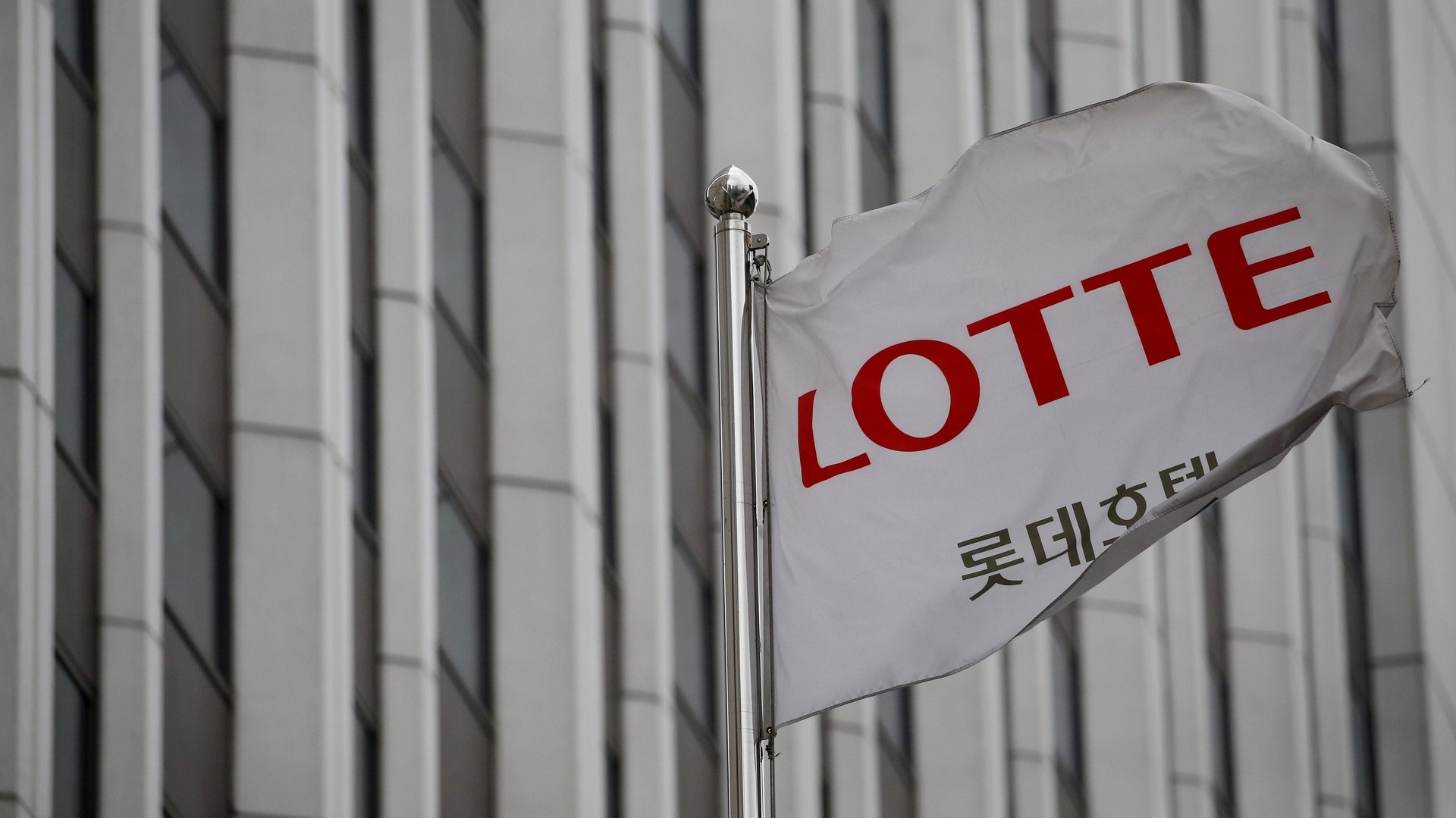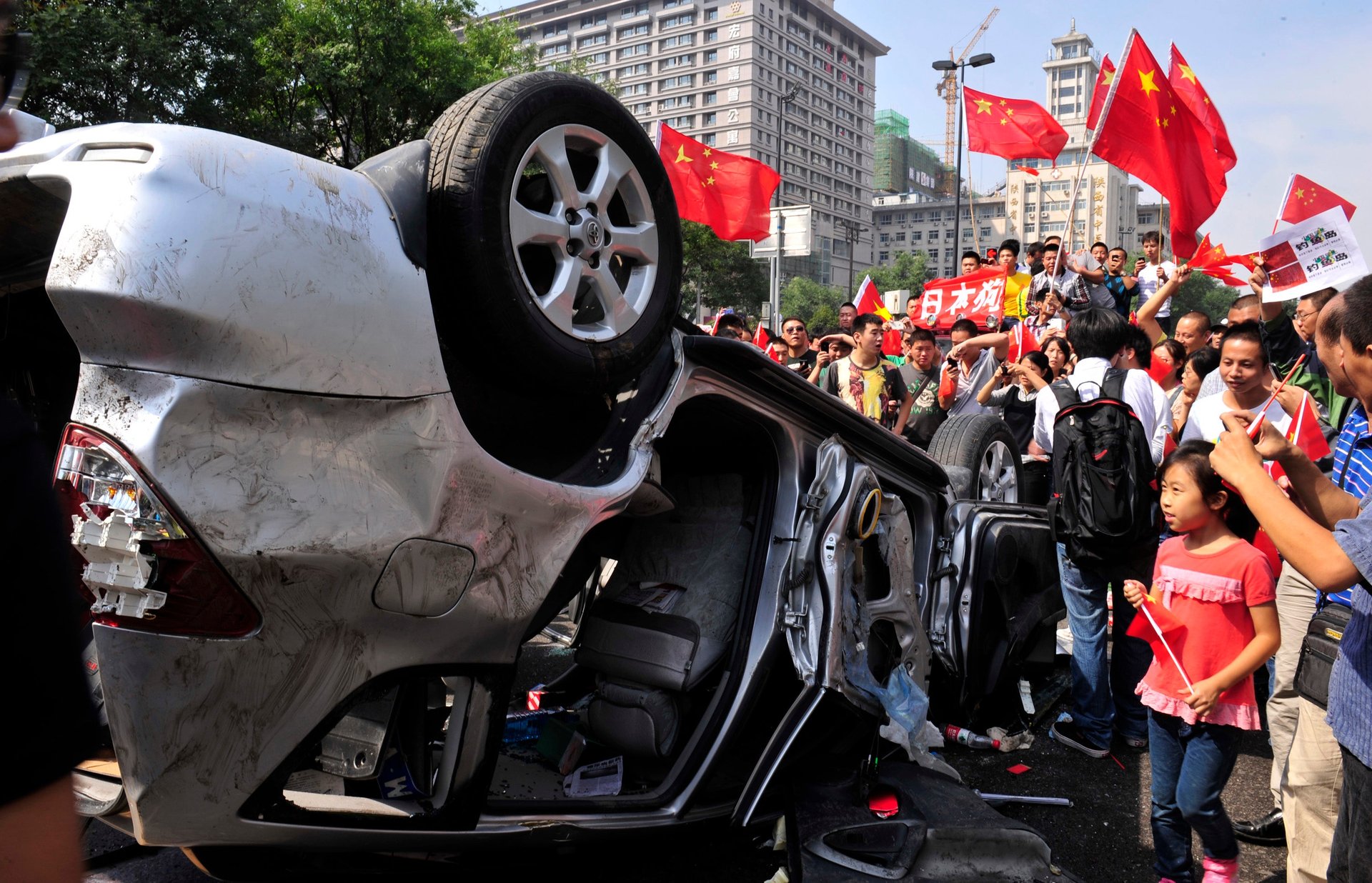In the name of Chinese nationalism, make these foreign companies suffer
Carrefour. Toyota. Honda. KFC. Lotte.


Carrefour. Toyota. Honda. KFC. Lotte.
One thing these foreign brands have in common is that they have paid the price for their governments poking the panda.
Lotte Group has become the latest target of Chinese economic retaliation over geopolitical issues, after the Korean conglomerate agreed last month to let the US and South Korea build an antimissile system on its golf course. The Terminal High-Altitude Area Defense (THAAD) system aims to counter the growing military threat from North Korea, but it is opposed by Beijing, which fears the defense system could one day be used against it.
Subsequently, the maker of Choco Pies is now having some bitter times in China, which accounted for half of its overseas revenue in 2015. In recent days, Chinese consumers, business partners, and local authorities have come out in full force to boycott Lotte’s goods and businesses, and hackers have also attacked its website. Previously, Korea’s entertainment, tourism, auto, and cosmetics industries have also taken a hit, though China has never admitted any actions were a response to THAAD.
China is no stranger to boycotts of foreign companies. Last July, there were reports of protests outside KFC branches in several Chinese cities after an international court ruled against Beijing’s territorial claims in the South China Sea in favor of the Philippines, which is backed by the US. In 2012, Japanese carmakers such as Toyota and Honda fell victim to Chinese boycotts, after Japan nationalized the contested Senkaku Islands, known as Diaoyu in China, in the East China Sea. In 2008, French retailer Carrefour became a target after a Chinese athlete in a wheelchair was attacked by pro-Tibetan activists in Paris during the Olympic torch relay.

Beijing is getting smarter at directing nationalism against its geopolitical rivals, and at a minimum its actions have ripple effects throughout their economies. “There’s no need for China to initiate stirring boycott campaigns against Korean goods,” the nationalistic state tabloid Global Times argued in a recent editorial (link in Chinese). In a message catering to the nation’s growing middle class, the article went on to advocate that Chinese people refrain from buying Korean cars and smartphones and to avoid traveling to Korea to safeguard state interests “under the premise that your plans are not affected.”
Chinese authorities have taken different stances on its citizens’ grassroots movements. They had no active role in the Carrefour boycott in 2008 and in fact sought to tone down the anti-Western sentiment, perhaps because the country was trying to gain global respect as the host of the Olympic Games. As Andrew Jacobs of the New York Times observed at the time, government ministers reminded people on TV that there were 40,000 Chinese employees at the country’s Carrefour stores, newspaper editorials urged citizens to embrace foreign friends ahead of the Olympics, and state censors made it hard for organizers to spread word of these protests.
In stark contrast, during the 2012 anti-Japanese protests, authorities were said to have sanctioned street rallies, but they soon lost grip as violence took over. Angry patriots overturned Japanese-made cars and smashed the windows of Japanese restaurants across the country. One of the darkest moments during the protests happened when a 21-year-old used a U-lock to split open the skull of his fellow countryman. To this day, the unfortunate Toyota owner from western Xi’an city lives in a hospital and walks with a limp (link in Chinese).
Today Chinese state organs play an important part in shaping public opinion in Korea’s case. State media, including the Global Times, People’s Daily, and Xinhua, have been calling on the public to take retaliatory actions against Lotte in a resolute but rational manner—no street protests necessary. Joining them are the social media accounts of the Communist Party’s Youth League and some local governments. Articles encouraging Chinese citizens take a stand against Korea have gone viral on China’s internet—some hitting more than 100,000 views on WeChat, the highest number displayed on the chat app.
And they all carry one unified message: If you don’t bow to us over geopolitics, don’t expect to benefit from our deep pockets.